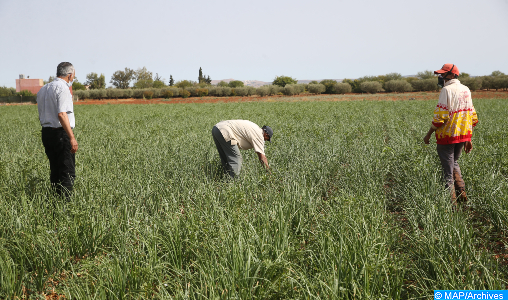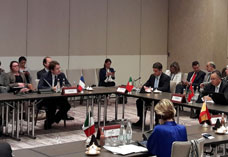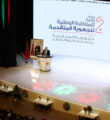Rabat: Moroccan-Tunisian-Japanese Project for Bio-Resources Valorization Wraps Up
Rabat – The closing seminar of the collaborative research and technical cooperation project between Japan, Morocco and Tunisia, on “the scientific development of biological resources in arid and semi-arid areas for the creation of a new industry”, was held Friday at the Hassan II Agro-Veterinary Institute (IAV) in Rabat.
Funded by the Japan International Cooperation Agency (JICA) and the Japan Science and Technology Agency (JST), as part of the Partnership for Scientific Research and Technology for Sustainable Development (SATREPS), this project aims to establish scientific evidence on the medicinal and industrial values of specific and abundant bio-resources in the North African region.
The project, whose closing seminar was organized by JICA and the University of Tsukuba in Japan, in collaboration with the Ministry of Agriculture, Maritime Fisheries, Rural Development and Water and Forests and the Ministry of Higher Education, Scientific Research and Innovation, also aims to develop scientific technologies to process, enhance and further promote the sustainable use of these bio-resources, especially those producing oil such as Argan and olive, among other aromatic and medicinal plants.
This project, implemented in Morocco and Tunisia since 2016, has enabled the participating institutions in Morocco, namely the IAV in Rabat and Cadi Ayyad University in Marrakech, to benefit from a number of technical trainings in Japan, using state-of-the-art equipment provided by the project.
Under this project, the Director of Education, Training and Research at the Ministry of Agriculture, Bilal Hajjouji, said that Moroccan researchers have produced 60 publications and 80 papers at international conferences, highlighting the success of scientific collaboration with Japan.
Hajjouji, also director of SATREPS project, stressed that this project is fully within the guidelines of the national strategy Generation Green, which aims to develop agricultural sectors.
For his part, the Japanese ambassador to Morocco, Hideaki Kuramitsu noted that the technical assistance scheme SATREPS, designed by Japan, represents an opportunity for researchers on both sides, to inaugurate a new era of ownership of research projects that were previously done in external laboratories.
In addition, Kuramitsu welcomed the policy of great economic change operated by the new development model towards a knowledge-based economy, green, citizen and inclusive, ensuring that scientific research and innovation are disciplines capable of providing real solutions to such a change.
This meeting, held in hybrid format, was attended by representatives of government, academic institutions of higher education and research, inter-professional federations and the private sector, Japanese companies, and representatives of the Ministry of Higher Education and Scientific Research of Tunisia.














